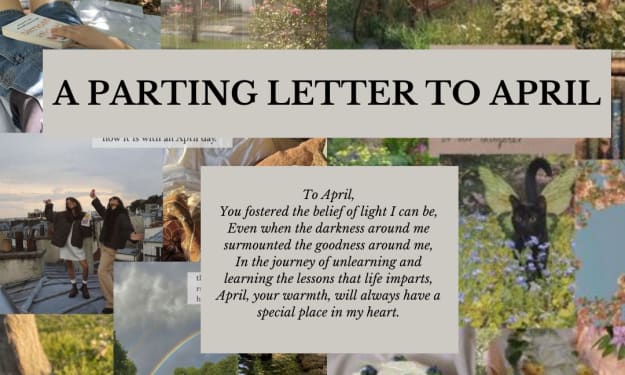10 Works Of Literature That Are *Technically* Fan Fiction
Imagine your favorite literary classic, but Tumblr

Fan fiction--the popularist fiction written by normal people (usually girls and women) and posted online/in a public forum--is frequently deemed trashy. Similar to salacious magazines a teenage boy hides under his bed, fan fiction readers are forced to hide their hobby and penchant for fan fiction. While the internet made the dissemination of fan fiction easier and more accessible, it is not uncommon to hear stories from parents and grandparents about a fan fiction that was passed around high school hallways chapter by chapter.
Today, many of us can name a bestselling novel or Netflix movie that started out as a fan fiction. Though, while this may seem relatively common due to high profile examples, many literary magazines, publishing companies, etc. now have policies that bar any work that started out as a fan fiction EVEN if the author changes names, characters, setting, plot, etc.
This is not a rule, but for many of us who have written fan fiction online, it can be disheartening. Some of the most compelling and engaging writing I've ever read was in the Tumblr app or on AO3. Of course, bad fan fiction exists, but so do bad books. So, why does fan fiction get a bad/trashy reputation? That's an entirely different article about how things popular among women become lesser than. It involves feminist theory, historical perspectives on literature, literary analysis, and a deep dive into the most profitable genre around the world: romance.
This is not that article. But, it is an article that uses the modern definition. and tenants of fan fiction to present why most of English literature (and world literature for that matter) is technically fan fiction. Here are ten literary examples of fan fiction.
#1: Romeo & Juliet by William Shakespeare
Yes, the Shakespearan tragedy all high school freshmen are subjected to is basically fanfiction. While many on this list will be based on stories written centuries before, the inspiration for Romeo & Juliet was called The Tragical History of Romeus and Juliet by Arthur Brooke. However, the true origins of the story may trace all the way back to an Italian novella or the French adaptation of that Italian novella. Regardless, the main sources Shakespeare pulled from were published in the 1560s and Shakespeare's tragedy did not premiere until 1597. Though, it was likely written earlier in the same decade.
Today, those original stories wouldn't be in the public domain and while Shakespeare wrote all of the prose of his plays, taking such obvious and major influence would have either ended in a plagiarism lawsuit or Romeo & Juliet would be relegated to the depths of AO3 with tags like warning: teenage angst, absurd use of swords, and too many dick jokes haha pls laugh.
Since it was not as easy to access literature from another country/culture at the time, the regular British public was likely unaware of the originating stories. Essentially, Shakespeare Anglicized the tale and added a few characters of his own such as the lamenting, soliloquy spilling Mercutio.
#2: Paradise Lost by John Milton
I had to read this for a literature class in college. Having not grown up attending church or actively practicing religion, I was at a disadvantage. Paradise Lost is blatant fan fiction of the Bible. The Bible had an incalculable influence on English and world literature. However, while others settled for allusions or metaphors, Milton employs two narratives taken straight from the Bible. One follows Satan and his fallen angels and the second follows Adam and Eve.
Using the style of an epic poem reminiscent of Homer and the other epic poets. He essentially created a Christian epic. Though, Milton does not keep his narrative squarely focused on the stories from the Bible, but rather inserts his own theology and morals. He puts forth perspectives such as the fall of Adam and Eve was actually fortunate. There are also themes relevant to the time such as criticism of the monarchy and radical views about what constituted idolatry.
#3: Ulysses by James Joyce
Along with the Bible, another major influence is Greek and Latin literature, especially the works of Homer, Virgil, etc. Ulysses is an adaptation of perhaps the world's most famous epic the Odyssey. The name Ulysses is the Latinized (Romanized) form of the name Odysseus. So, essentially, Ulysses is a 1900s Ireland AU fic of the Odyssey.
By today's standards, Joyce could publish this without issues. He also writes in the modern form of the novel versus the epic poem which was not commonly written when Joyce wrote Ulysses. If not for the title and known association, this one could potentially pass itself off as an unrelated novel vaguely alluding to the well known epics of the past.
#4: Inferno by Dante Alighieri
Okay, this is my literature hot take. Dante's Inferno is self-insert fan fiction. Not only is the main character a not-at-all veiled version of himself, who gets a tour of Hell from his hero Virgil who just happens to find him really cool and brilliant.
Inferno is a foundation of literature. It also presents interesting interpretations of Hell and religion. The work is a religious allegory and creates that allegory in a completely original way. So, yes, while we all wrote self-insert fan fiction when we were 15 (no, just me?), that doesn't mean it should *immediately* be written off.
#5: The Chronicles of Narnia by C.S. Lewis
Out of all the works on the list, I was most hesitant to include The Chronicles of Narnia by C.S. Lewis. It is a known religious allegory similar to A Wrinkle In Time where the religious aspects are not necessarily obvious. However, growing up, my classmates went around basically screaming "Aslan is Jesus!"
Thus, if ten-year-olds can understand this allegory, then it is likely not hidden that well (in contrast to Dante's aforementioned allegory). C.S. Lewis openly provided critics of other religion inspired literature, including Paradise Lost. The Chronicles of Narnia takes stories and characters from the Bible and places them into a fantastical world with children as the main characters.
Personally, I love C.S. Lewis and The Chronicles of Narnia books. I was one of those children who did not catch on to the religious aspect until others told me about it. Even so, the books feel like Lewis explores his own interpretation of the Bible, religion, and his own personal religious beliefs. This is not dissimilar to others on this list or modern fan fiction that often changes problematic aspects of the original work or reconciles personal feelings using a familiar/welcoming world of the writer's own creation.
#6: The Aeneid by Virgil
Among one of Roman poet, Virgil's, best known works, The Aeneid, follows Trojan prince Aeneas as he flees Troy and becomes the ancestor of the Roman people. Having studied the works of Homer, Virgil adapted the form of the epic poem for the Roman people. Borrowing a form does not make this fan fiction, however.
In a way, The Aeneid is a headcanon about a Trojan prince who went on to sire the next great European empire. Though, the journeys of Aeneas predate Virgil by several centuries because Greek colonists in Italy and surrounding areas wanted a way to connect themselves with their roots. Thus, the story of Aeneas was born.
Of course, Virgil also uses creates or uses genealogies from Homer's works and even follows the events of The Iliad nearly perfectly in the second half of his work.
#7: The Three Musketeers by Alexandre Dumas
The Three Musketeers is a classic story that was so popular that a reference to the book is even a common English idiom. Dumas based his work on a semi-fictional work by Gatien de Courtilz de Sandras. Yes, semi-fictional. The character of d'Artagnan was a real person and musketeer under King Louis XIV. These semi-fictionalized writings served as the inspiration for Dumas.
The fictional d'Artagnan is now more well known than the historical one. While the context of this work may not have been well known--similar to Shakespeare's sources--this does not exclude that it uses multiple characters from the original work and events from the real man's life to form the basis of his work.
#8: The Penelopiad by Margaret Atwood
A modern re-working of The Odyssey, this novel tells the story of Penelope, Odysseus's wife. While she did get some focus in the original epic, her story is largely glossed over and she serves more as a plot device and motivation for Odysseus. Written as part of a project where author's re-write well known myths, this is more considered a re-telling than fan fiction.
With that said, we only refer to these sorts of stories as "re-tellings" when the original works are either centuries old and commonly known or within the public domain. The re-telling genre largely includes fairy tales and myths for their basis. Still, the legal status of the work does not negate the artistic inspiration.
#9: Richard III by William Shakespeare
While fan fiction was often thought of as stories based on other stories such as novels, movies, etc., there is another form of fan fiction that focuses on real people. You may have seen One Direction fan fiction or even fan fiction about political figures. Some may view this form of fan fiction within an ethical gray area that already lies in an ethical gray area. However, this is not new.
Many children of the eighties and nineties will tell you of serialized fan fiction about the latest heartthrob being passed in the halls between classes. And, even Shakespeare dabbled in this sort of fan fiction too.
Shakespeare was born about eighty years after the end of the War of the Roses. Yet, one of his best known historical plays, Richard III, is based on this event (as is today's Game of Thrones). It fictionalizes the controversial king's life while also relating known historical facts, combining a genre still prevalant today and also an example of fan fiction based on real people.
#10: Good Omens by Neil Gaiman & Terry Pratchett
Starting out as a parody of another work based on the Bible, Gaiman's original work grew as Pratchett came onto the project as well. The two powerhouse writers drew from many sources and while this may interpret aspects of fan fiction loosely, it does involve a sort of continuation of some of the Bible's stories and draws heavily from its text.
Gaiman also publishes fan fiction on his personal website frequently. In fact, he originally wrote Doctor Who fan fiction before eventually writing a few episodes of the show too.
There are many modern examples of fan fiction within our current media as well. Of course, due to modern legality, publishable modern fan fiction only features stories within the public domain or in specific circumstances. Still, many examples exist such as The Crown, The Game of Thrones, and Pride, Prejudice, & Zombies. Many popular books have also started out as fan fiction such as Fifty Shades of Gray and the City of Bones series.
About the Creator
Alisan Keesee
I am a 26-year-old who lives with my cat. Originally from a small, unincorporated Washington town, I have a penchant for boybands, black coffee, and true crime. I am a graduate of Western Washington University.






Comments (1)
I did not know this about Ulysses and the three musketeers - thanks for this!